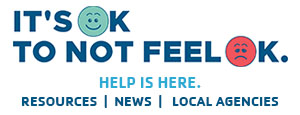
As students prepare to go back to school, they are bringing more with them more than a backpack packed with essentials.
Students of all ages are struggling with depression, anxiety and thoughts of suicide.
Young people are dealing with substance misuse and addiction, and some are dying from accidental fentanyl overdoses.
Student wellbeing activist David Magee said there are things schools can do to help students.
“Many schools fear being labeled a ‘drug’ school, and while this kind of thinking is misinformed and misplaced, it repeatedly happens,” said Magee, author of the upcoming book Things Have Changed: What Every Parent (and Educator) Should Know About the Student Mental Health and Substance Misuse Crisis and award-winning book Dear William: A Father’s Memoir of Addiction, Recovery, Love, and Loss.
“Schools can’t have a drug problem, though, because they are merely collections of students from families within the community,” he said. “Substance issues are family and community issues that show up in our schools, colleges, and universities. The same is true of mental health disorders, and countless students at many upstanding schools suffer in both areas.”
Some schools fear labeling to the point that they don’t offer the needed education about substance misuse.
However, the pandemic shed light on mental health struggles and brought the need for change to the forefront.
“Schools and colleges are in a great position to help students navigate these challenges,” said Magee. “It begins with breaking down the stigma and letting students – of all ages – know that they are loved and supported.”
Magee’s firstborn son, William, died from an accidental drug overdose in 2013.
“Stopping this crisis depends on parents, educators, students, and communities all working together like never before,” said Magee. “Having caring educators join in these efforts will help our children – of all ages – find the health and happiness they truly deserve.”
Tips for educators
Tackle the stigma head on.
Everyone involved in higher education should be united to normalize mental health issues and substance misuse, says Magee. This is the only way young people will feel comfortable talking about their struggles or asking for help.
- Share real-life examples of people coping with mental health or substance use disorder to put a face on it.
- Avoid using judgmental tones or words about anyone who suffers mental health or substance use disorder. (And be sure to speak up if you hear a student being judgmental.)
- Let children know that substance use disorder is a treatable disease, not a personal weakness.
- If you’ve received counseling or struggled, share that experience with a student who needs to feel less alone.
Make use of peer-to-peer educators.
There’s a wise saying that goes, “Students get students on drugs, and students can get students off drugs,” (or keep them from starting in the first place).
Magee urges elementary, middle, and high schools and universities to create peer-to-peer programs to educate and support students. These student-led organizations are proven to be effective at educating young people about mental health issues and substance misuse.
“Almost every student wants happiness, and they’ll listen to strategies for getting there from fellow students,” said Magee, who started a foundation in honor of his son.
Talk to students about the ‘tools’ for wellbeing, health, and success.
Creating sustainable joy begins with healthy habits, said Magee. All students need a “toolbox” of habits, practices and mindsets to help them maintain their mental health, avoid dangerous behavior like substance misuse, and create the wellness they crave.
Any student should have access to mental health services.
In a grade school setting, this might be the guidance counselor, school psychologist, social worker, or school nurse. Most college campuses provide counseling centers that offer mental health support. What’s most important, though, is that students know what programs, services, or treatments are available, and that they know how to make an appointment.
Help students stay in school while they get the treatment they need.
It’s crucial that schools create a clear path for students navigating substance misuse. All too often, they must choose between attending classes (or finishing out the school year) and seeking treatment. Magee insists that students should be able to get the help they need without academic consequences. He recommends schools and universities find ways to accommodate recovery treatments the way they would any other disease (because substance use disorder is, in fact, a disease). If possible, students should have the option to attend outpatient programs while remaining in school.
Tips for students
Get plenty of sleep each night (not once in a while).
Sleep deprivation can cause behaviors mimicking the symptoms of ADHD, along with rollercoaster emotions and impulses and increased risk for anxiety and depression. Young people need eight to ten hours of sleep each night.
Daily exercise, fresh air, and sunlight.
A daily walk or run sends invigorating blood to the brain and body, making students feel more alive and alert while improving their mood. Encourage students to get movement every day.
Intentional social media use.
There’s nothing wrong with using social media, but it’s not healthy to be online 24/7. Advise students to monitor their stress and anxiety levels (pay attention to feelings of nervousness or inferiority) and know when to take a break or stop altogether.
If you or someone you know needs support now, call or text 988 or chat at 988lifeline.org
Project Mental Health aims to connect you with the resources available in our community that can give you the help you need. We aim to get you connected with the people in Augusta County, Staunton and Waynesboro who can help get you back on track.












